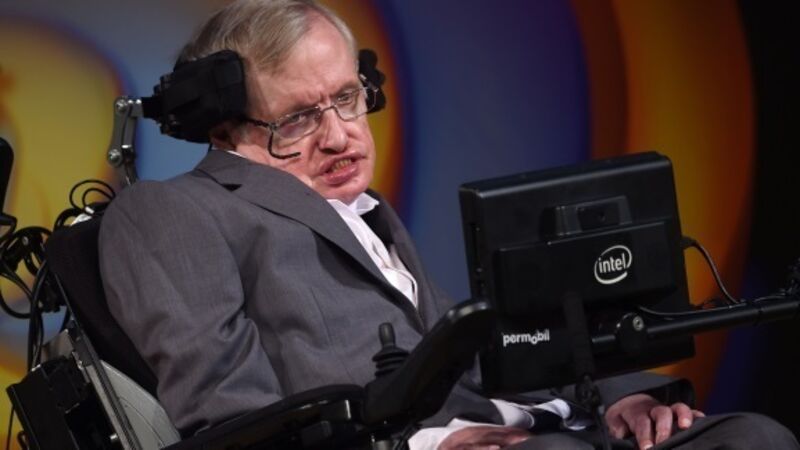Stephen Hawking’s sense of humour is all relativity

By the time he died last March, the astrophysicist Stephen Hawking was convinced there was no God and no afterlife.
Try from €1.50 / week
SUBSCRIBEBy Dan Buckley
By the time he died last March, the astrophysicist Stephen Hawking was convinced there was no God and no afterlife.
Already a subscriber? Sign in
You have reached your article limit.
Annual €130 €80
Best value
Monthly €12€6 / month
Introductory offers for new customers. Annual billed once for first year. Renews at €130. Monthly initial discount (first 3 months) billed monthly, then €12 a month. Ts&Cs apply.
CONNECT WITH US TODAY
Be the first to know the latest news and updates
Newsletter
Keep up with stories of the day with our lunchtime news wrap and important breaking news alerts.
Monday, February 9, 2026 - 6:00 AM
Monday, February 9, 2026 - 8:00 AM
Monday, February 9, 2026 - 9:00 AM
© Examiner Echo Group Limited